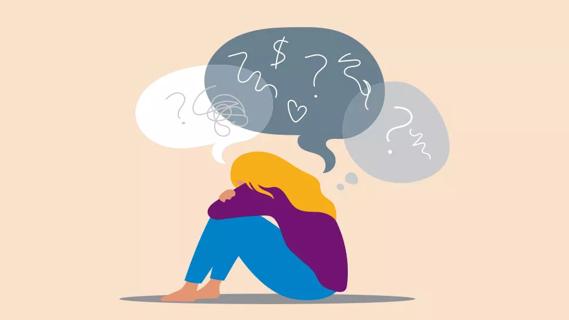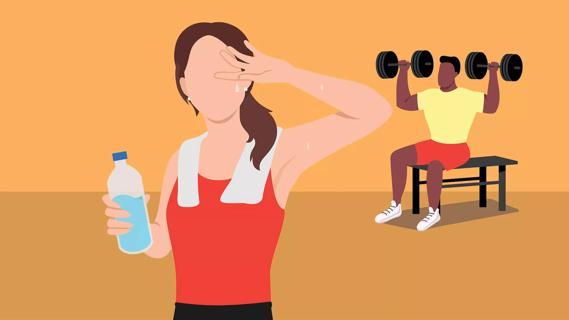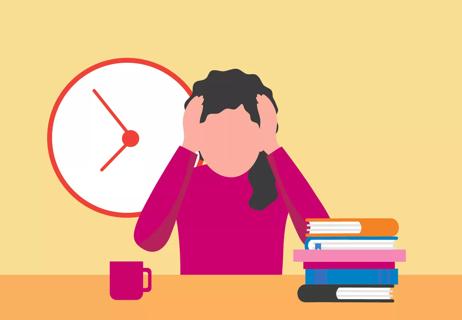Find out why you’re freaking out — and how to stop

You were fine a minute ago. Now your heart is racing, your hands and feet have gone numb and you feel like you can’t get enough air.
Advertisement
Cleveland Clinic is a non-profit academic medical center. Advertising on our site helps support our mission. We do not endorse non-Cleveland Clinic products or services. Policy
Clearly, you’re freaking out. But why? Are you having a panic attack? An anxiety attack? Are they the same thing? Are you going crazy? (Why can’t you stop the flood of questions?!)
Deep breaths. Clinical psychologist Regina Josell, PsyD, explains what’s going on when your body goes haywire — and how to get back to a place of calm.
A lot of people use the terms “anxiety attack” and “panic attack” interchangeably, but anxiety and panic attacks are slightly different beasts, Dr. Josell says. What’s the difference?
Here’s a basic breakdown:
Advertisement
It’s one thing to get nervous. A panic attack is different. To qualify as a panic attack, you have to experience four or more of these symptoms:
Unfortunately, if you have one panic attack, it’s common to have another. People often become so worried about it happening again that it becomes a self-fulfilling prophecy, says Dr. Josell. “People sometimes start to avoid certain situations or places where they had a panic attack before. They might even avoid leaving home,” she adds.
But you don’t have to become a hermit, reassures Dr. Josell. “Panic attacks are so treatable.”
1. Label it
When someone has a panic attack, they often think they’re having a heart attack or losing their mind, Dr. Josell says. “It can be pretty intense and often happens out of the blue.”
Learning about panic attacks and recognizing the symptoms helps people keep it together if they have another. “It helps if you can say to yourself, ‘This is a panic attack, it’s not going to kill me, it will be uncomfortable — but it will end,’” she says.
2. Keep track
Keep a log of your panic attacks, including when and where they happened, how long they lasted and anything that might have triggered it. If you can identify a particular trigger, you can find specific ways to manage that trigger.
Tracking also helps you see if your current strategy for dealing with panic attacks is working. “When people see their panic attacks are happening less often, or lasting for a shorter time, it gives them confidence — and that helps them get better,” Dr. Josell says.
3. Breathe
Deep breathing exercises can help turn down your body’s panic response, helping your breath and heart rate return to normal. You can find breathing exercises online and in the app store.
4. Distract yourself
“The more you focus on your panic, the worse it gets,” Dr. Josell says. “Wash your face, brush your teeth, pet the dog, smell something pleasant — using your other senses, like smell and touch, can be helpful.”
5. Ask for help
Mental health professionals can help you find ways to manage anxiety as well as treat panic attacks and panic disorder. To tackle panic attacks, they often use a Jedi mind trick known as cognitive restructuring. You learn to identify and change the thoughts that go hand-in-hand with panic triggers.
Advertisement
“Once you learn to manage those thoughts instead of dreading them, it tends to reduce both the intensity and frequency of the panic attacks,” Dr. Josell says.
If you feel like panic attacks are controlling you, flip the script and start controlling them instead. “If panic attacks are interfering with your daily life, it’s a good time to get help,” she says.
Advertisement
Learn more about our editorial process.
Advertisement

Too much screen time and unrealistic expectations and perceptions and can lead to an increased risk of anxiety and depression

Although different conditons, they can occur together or cause one another

If the thought of the gym sends you spiraling, do some prep work beforehand and bring a friend along for support

Stay merry and bright by knowing your triggers and journaling throughout your visit

Focus on a positive mindset, strong study habits and healthy living

Breathwork, sleep meditation and avoiding screens can help fight back morning anxiety

This supplement may help with regulating cortisol levels, which may help with stress

Physical, mental and emotional responses are all relevant symptoms

Type 2 diabetes isn’t inevitable with these dietary changes

Applying a hot or cold compress can help with pain